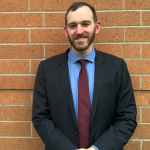
Warren Fingrut, MD
Fellow, Adult Bone Marrow Transplantation, Memorial Sloan Kettering Cancer Center, NY USA
Key areas of interest:
Stem Cell Donation, donor recruitment
He is currently a Fellow in Adult Bone Marrow Transplantation at Memorial Sloan Kettering Cancer Center in New York.
Dr. Fingrut is founder and director of Stem Cell Club, a donor recruitment organization in Canada that recruits over 5,000 stem cell donors annually (>50% male, >50% diverse). He also leads Why We Swab a library of stories in Stem Cell Donation featuring stem cell donors and recipients, patients searching for a match, and their family members, and directs development of donor recruitment TikToks.
Dr. Fingrut is also a researcher with the Canadian Donation and Transplantation Research Program.

Professor Christopher France
Distinguished Professor of Psychology, Ohio University, USA
Key areas of interest:
Blood donation, recruitment and retention, vasovagal reactions, donor satisfaction
Chris has more than 30 years of research and clinical experience in the assessment of individual differences in responsivity to stress, and a particular interest in the development of interventions to help prevent blood donor vasovagal reactions, increase donor satisfaction, and enhance donor recruitment and retention. He has published more than 200 peer-reviewed journal articles, and has a long-standing history of national and international funding to conduct multi-site randomized controlled trials with a translational focus.

Dr Janis France
Senior Researcher, Ohio University, USA
Key areas of interest:
Blood donation, recruitment and retention, biopsychosocial models of donor behaviour
Janis has substantial experience with development of donor educational materials for recruitment and retention of donors, and intervention protocols for enhancing the donation experience to improve donor retention. She has published more than 60 peer-reviewed journal articles and has a history of collaborative research with various blood collection agencies in the USA and internationally.

Dr Jennie Haw
Scientist, Centre for Innovation, Canadian Blood Services; Adjunct Research Professor, Department of Health Sciences, Carleton University
Key areas of interest:
Cord blood banking and donation, historically excluded and under-represented donor groups
She has been awarded funding from the Canadian Institutes of Health Research (CIHR) and the Social Sciences and Humanities Research Council (SSHRC) to support her research projects. Her past and current projects include: examining women’s experiences of cord blood banking and donation, understanding blood donation from the perspectives of historically excluded and under-represented groups, and identifying social and structural barriers and enablers to donation. Jennie welcomes the opportunity to collaborate on multidisciplinary projects.
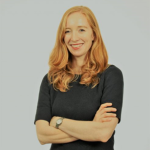
Dr Kelly Holloway
Scientist, Centre for Innovation, Canadian Blood Services
Key areas of interest: Donor behaviour and recruitment, plasma donation, health policy
Dr. Holloway investigates donor behaviours to effectively inform strategies and approaches to recruitment, using qualitative research methodologies to understand how donor behavior is situated in political, social and economic contexts. Her current work focuses on plasma donation and health policy.
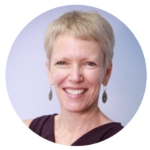
Dr Maryanne Perrin
Assistant Professor, Department of Nutrition at the University of North Carolina Greensboro
Key areas of interest:
Donor human milk, milk sharing; demographic, clinical, and behavioural characteristics of milk bank donors
Dr. Maryanne Perrin is an Assistant Professor in the Department of Nutrition at the University of North Carolina Greensboro. Her research focuses on the use of donor human milk for feeding preterm infants. While donor human milk banking is growing globally based on endorsements from the World Health Organization and the US Surgeon General, there is limited information about milk bank donors or the nutritional composition of donor human milk. Dr. Perrin has led some of the preliminary research into these topics including exploring the emergence of online milk sharing communities in the United States; investigating how participants in peer milk sharing perceive donor milk banking; and establishing the largest biorepository of donor human milk in the United States representing milk from 75% of the milk banks in North America. Current projects include the development of a donor survey to learn about the demographic, clinical, and behavioral characteristics of milk bank donors in diverse geographic settings.
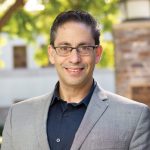
Professor Jason Siegel
Professor of Psychology, Claremont Graduate University, California, USA
Key areas of interest:
Organ donation, donor registration
Prof. Siegel has been researching living and non-living organ donation for approximately two decades. His research often focuses on reducing attitude-behavior consistency regarding donor registration, increase the persuasive strength of messages targeting donor registration behavior, and the role of emotions in donor decision making. Prof. Siegel has also conducted research focused on living donation and testing his IIFF Model of non-living donation.
Prof. Siegel co-edited a book focused on behavioral science approaches for changing organ donor attitudes and behavior. His organ donor scholarship has been published in journals such as Health Psychology, Social Science and Medicine, and Journal of Health Psychology. Prof. Siegel has been the Principal Investigator and Co-Investigator for millions of dollars of funding for organ donor research efforts.
He was the 2014 recipient of the Western Psychological Association Early Career Research Award, was nominated for and accepted into the Society of Experimental Social Psychology in 2015, and was named the inaugural winner of the Claremont Graduate University Presidential Research Award for outstanding contributions to new knowledge in 2018. Most recently, Siegel received the 2019 Western Psychological Association Social Responsibility Award.
Materials from a study recently led by Dr. Siegel can be found at MVDdonorproject.org.

Professor Galen E. Switzer
Professor of Medicine, Psychiatry, and Clinical and Translational Science Director, PhD Program in Clinical and Translational Science Co-Director, VA Health Services Postdoctoral Fellowship Program
Key areas of interest:
Living organ and tissue donation, donation registry
Dr. Switzer continues to lead the investigation on donation experiences from the donor perspective and advancing the understanding of health-related quality of life of pediatric stem cell donors and their families.

Dr Juan Manuel Cisneros Carrasco
Clinical Pathologist, Instituto Mexicano del Seguro Social
Key areas of interest:
Evaluation of motivations and attitudes of blood donors in Mexico.
The cost of blood donation: an experience from a Mexican Hospital. Knowledge evaluation about transfusion medicine in postgraduate clinicians.
Dr Cisneros Carrasco is a Clinical Pathologist, with a Master in Management.
Founder of the Clinical Pathology residency in the City of León, México.
Member of the ISBT. Collaborator with the Donors and Donation Working Party.
National and international lecturer and trainer on public health issues, with special attention to structured promotion and awareness of altruistic blood donation, transfusion medicine and hemoteraphy.
Blood Donor Recruiter, certified by the Global Blood Found.
CONACyT fellow with training abroad in the Blood Bank of the HM Sanchinarro University Hospital, Madrid, Spain, 2016.
Developer and publisher of scientific articles and postgraduate theses. Reviewer of scientific papers at the Mexican Institute of Social Security.
Active consultant for public and private projects in laboratory medicine, administration and hospital management.
Experience as a technical adviser in national tenders for public health institutes.
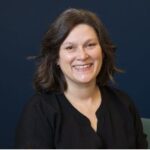
Dr Lindsey McKay
Assistant Teaching Professor, Thompson Rivers University
Key areas of interest:
Transplant tourism, donation policy
Dr. Lindsey McKay is an Assistant Teaching Professor at Thompson Rivers University. Dr McKay studies donation from a feminist political economy perspective. Dr McKay has published on Canadian Transplant Tourism and public communication in Canadian donation policy.